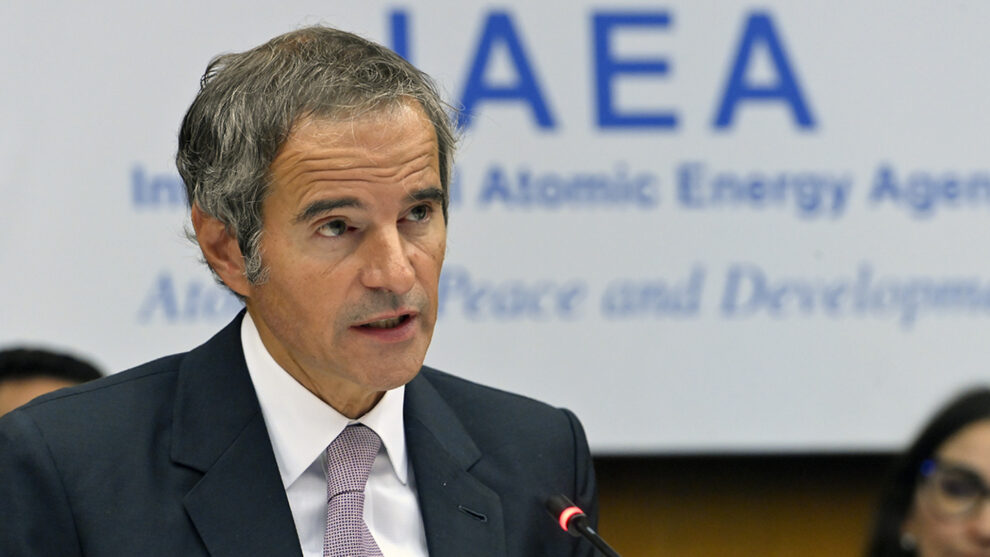Delegates attending the 5th Federation of African Nutrition Societies (FANUS) Conference in Dakar, Senegal, have welcomed the launch by the IAEA of a new Master’s Programme in Nutrition and Nuclear Techniques. The programme, launched at the FANUS conference on 21 November 2023, aims to provide students with the ability to build nutrition strategies and programmes effectively and master a skillset on stable isotope and nuclear techniques related to nutrition. The programme is a concrete contribution to targeted professional education on the African continent and aligns with the African Union’s commitment to capacity building as laid out in its Agenda 2063.
“The Master’s degree curriculum in Nutrition and Nuclear Techniques provides training on additional ways to assess nutritional status using isotope technology. I recommend that African universities offering courses on nutrition adopt the curriculum, as it will educate experts able to take a leading role in applying this innovative technology in a range of diverse areas within the nutrition field,” said Ngozi Nnam, President of FANUS.
The ‘Master of Science in Nutrition and Nuclear Techniques’ was developed and validated by African health and nutrition professionals from 22 countries with the support of an IAEA regional technical cooperation project. The standardized curriculum educates students about the African and international nutrition landscape, epidemiology and statistics in addition to nuclear and stable isotope techniques in nutrition, including the assessment of young child feeding practices, and diet quality in terms of nutrient bioavailability, body composition and total energy expenditure. In the second year of the programme, each student will conduct a data collection field work assignment using at least one stable isotope technique and will prepare a thesis based on the project results.
“The new Master of Human Nutrition with Nuclear Techniques supports our institutional aims to deepen internationalization and collaboration on the African continent and beyond, grow the cohort of postgraduate students, and train the students who are relevant to the market and are equipped with knowledge to provide solutions to global challenges especially the United Nations Sustainable Development Goals,” said Jeffrey Mphahlele, Deputy Vice-Chancellor: Research and Innovation, North-West University, South Africa.
Four universities have been designated as official teaching centres: the University of Ghana (Ghana), the International University of Rabat (Morocco), Université Cheikh Anta Diop (Senegal) and North-West University (South Africa). In South Africa, the master’s programme will commence in February 2024, and it is undergoing the official approval process in Ghana and Senegal. The master’s programme has already been adopted in Morocco, and the first cohort of 15 students from francophone Africa began their studies in October 2023.
“As the first graduate from the Comoros Islands to benefit from such a programme, the Master’s in Human Nutrition and Nuclear Techniques will contribute to a better understanding of nutritional needs, diet and human health, enabling me to take action to improve the nutritional health within my country,” said Loutphia Loufti, who is participating in the MSc programme in Morocco.
The FANUS conference is the largest gathering of nutrition professionals, practitioners, policy makers and UN agencies on the African continent. It takes place every four years, with the aim of providing a common forum for nutritionists and colleagues in related disciplines to interact and deliberate on how to overcome the various food, health and nutritional challenges in Africa that impede sustainable human capacity development and progress toward achieving the United Nations Sustainable Development Goals.
Africa continues to bear the brunt of the double burden of disease and malnutrition that are fuelled by rapidly changing food systems, climate change, burgeoning populations, rapid rural-urban migration and an increasingly globalized economy. These factors limit access to nutritious foods, increase the number of people with sedentary lifestyles and contribute to general food insecurity. The new IAEA-supported master’s programme will help address the shortage of trained nutrition professionals in Africa to begin to reverse these negative trends.
“African countries face largely similar nutritional issues that require a coordinated response. A standardized curriculum such as this is a great step towards developing a cadre of African nutrition professionals who are equipped with innovative tools to assess nutrition outcomes,” said Cornelia Loechl, IAEA Section Head for Nutritional and Health-related Environmental Studies.
Source: IAEA
















